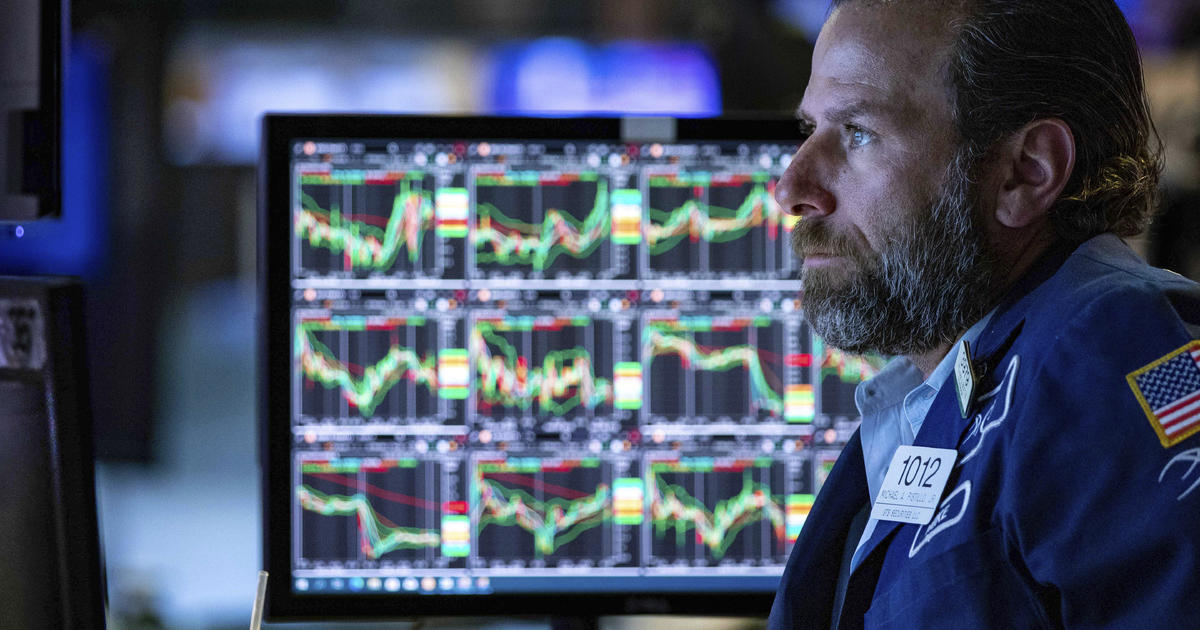Stocks in the U.S. plunged Monday as investors digested a report last week showing that inflation in May surged at its fastest pace in four decades.
The S&P 500 tumbled 139 points, or nearly 4%, to 3,762 as of 10:52 a.m. Eastern time. Other benchmark indexes also sank sharply, with the Dow Jones Industrial Average dropping 819 points, or 2.6%, and the and Nasdaq Composite dropping 4.2%.
On Friday the S&P 500 sank 2.9%, locking in its ninth losing week in the last 10. The U.S. government’s report that inflation accelerated to 8.6% in May, from 8.3% the previous month, was taken to mean that the Federal Reserve will continue to raise interest rates, dashing investor hopes of cooling inflation.
“Friday’s CPI report was too hot to handle for U.S. equity markets. The 40-year high print in annual inflation last month spoiled the peak inflation narrative and triggered a wave of selling pressure across risk assets,” Piper Sandler analysts said in a report.
Cryptocurrency prices also slid, with bitcoin sliding to $23,981 — its lowest since December 2020, according to Bloomberg.
“The brief window of hope that opened in the back half of May as it looked like U.S. inflation/Fed tightening forecasts were hitting a peak and China was reopening has snapped violently shut, and investors are back to wallowing in a hole of despair following the huge CPI on Friday and the modest COVID setbacks in China,” analyst Adam Crisafulli, founder of Vital Knowledge, said in a note.
El-Erian says inflation could hit 9%
08:59
Allianz Chief Economic Adviser Mohamed El-Erian echoed concerns about inflation picking up steam. “I think you’ve got to be very modest about what we know about this inflation process. And I fear that it’s still going to get worse, we may well get to 9% at this rate,” he said this weekend on CBS News’ Face the Nation.
Inflation at the pump
Fierce inflation is taking a toll on consumers. A University of Michigan index on Friday showed that consumer confidence fell to a 50-year low in early June. Average gas prices surged above $5 a gallon for the first time ever this weekend, according to AAA.
Americans typically drive more starting around Memorial Day, so demand is up. Global oil prices are rising, compounded by sanctions against Russia, a leading oil producer, because of its war against Ukraine. And there are limits on refining capacity in the United States because some refineries shut down during the pandemic.
Federal Reserve officials are scheduled to meet this week for their policy meeting, and investors expect them to raise interest rates at least half a percentage point in a bid to rein in inflation. Some Wall Street analysts think the pace of monetary tightening is likely to tip the economy into a recession.
“With the recent inflation data providing no ‘clear and convincing evidence’ that inflationary pressures will recede without stronger policy actions, the challenge for monetary policymakers of guiding inflation back to target without depressing demand to the point of triggering a recession has gotten that much more difficult,” analysts with Deutsche Bank told investors in a research note.
“In our view, achieving such a ‘soft landing’ looks very unlikely given the degree of monetary tightening needed to combat the seemingly endless stream of inflationary shocks and rising inflation expectations,” they added.
Chris Beauchamp at IG, expressed similar doubts in a research note.
“It’s still too early to say a recession is definitely coming in the U.S., but a ‘hard landing’ seems very hard to avoid at this point given the way inflation is still rising,” the chief market analyst said.
Mark Haefele, chief investment officer of global wealth management at UBS, has a more benign view. He still expects inflation to dip later this year, noting that the price of products like smartphones and TVs have started to decline. He notes that so-called core inflation, which excludes volatile food and energy prices, declined slightly in May even as the broader Consumer Price Index rose.
